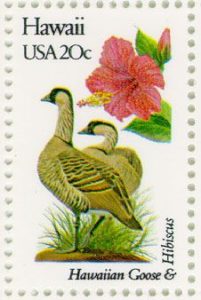Bills to Regulate Video Game Loot Boxes Introduced in Hawaii
A pair of bills have been introduced in the Hawaii House of Representatives (with twin bills in the Senate) that aim to regulate video games that employ loot box features. The bills are spearheaded by sponsor (among others) Rep. Chris Lee.
 In most games, loot boxes can be both earned periodically through gameplay or purchased via an in-game store for real money (alternative, purchased with in-game currency which can itself be bought with real money). The loot boxes contain randomized rewards – based on a programmed probability table – that can be used in-game. In some games, like Overwatch, all loot box items are cosmetic and give players no in-game advantage. In other games, items can benefit a player by giving them a better weapon, a special ability, or other advantage.
In most games, loot boxes can be both earned periodically through gameplay or purchased via an in-game store for real money (alternative, purchased with in-game currency which can itself be bought with real money). The loot boxes contain randomized rewards – based on a programmed probability table – that can be used in-game. In some games, like Overwatch, all loot box items are cosmetic and give players no in-game advantage. In other games, items can benefit a player by giving them a better weapon, a special ability, or other advantage.
The controversy that has evolved over the past year or two revolves around the similarity of loot boxes to gambling and the fact that they are in video games, which millions of children and teens play. The bills put it as so:
In recent years video game publishers have begun to employ predatory mechanisms designed to exploit human psychology to compel players to keep spending money in the same way that casino games are so designed. These mechanisms allow players to purchase chances at winning rewards within games, similar to a slot machine. These predatory mechanisms, a common variety of which are known as loot boxes, can present the same psychological, addictive, and financial risks as gambling. There are even online marketplaces where players can buy and sell digital items won from loot boxes and other gambling-like mechanisms in many games, enabling players to effectively cash out their winnings.
And, as the bills say, there are no consumer protections in place when it comes to loot boxes. They can be found in games with all sorts of age ratings and generally aren’t very hard to purchase (either directly or indirectly).
One of the bills, HB2686, looks to set age restrictions on games that contain lootboxes:
§481B- Video games; restrictions. (a) It shall be unlawful for any retailer to sell to any person under twenty-one years of age a video game that contains a system of further purchasing:
(1) A randomized reward or rewards; or
(2) A virtual item which can be redeemed to directly or indirectly receive a randomized reward or rewards.
That’s all well and good, but how would a retailer know for sure which games have loot box mechanisms in them? Well, enter the second bill, HB2727. This one does a couple things – it requires game makers to disclose the probabilities of the various loot box rewards and to place a prominent label on the game’s packaging or on the game’s download page so that it is easy to know about in-game loot boxes:
§481B-A Video games; probability rates; disclosure. (a) Video game publishers that distribute video games that contain a system of further purchasing:
(1) A randomized reward or rewards; or
(2) A consumable virtual item that can be redeemed and directly or indirectly converted to a randomized reward or rewards, shall prominently disclose and publish to the consumer the probability rates of receiving each type of randomized reward or rewards at the time of purchase and at the time any mechanism to receive a randomized reward or rewards is activated so as to meaningfully inform the consumer’s decision prior to the purchase or activation of any mechanism to receive a randomized reward or rewards.
(b) The department of commerce and consumer affairs, in consultation with the office of enterprise technology services, is authorized to audit the code of video games sold in this State and subject to this section to ensure that the probability rates for receiving each type of randomized reward or rewards are calculated correctly and working properly. The department may contract with a third party to provide additional assistance as needed. The department shall not publicly disclose proprietary information beyond that which is necessary to fulfill the intent of this section.
§481B-B Video games; labelling; disclosure. (a) Each video game subject to section 481B-A shall:
(1) Bear a prominent, easily legible, bright red label on its packaging which reads: “Warning: contains in-game purchases and gambling-like mechanisms which may be harmful or addictive”; or
(2) If purchased digitally and downloaded through the Internet or an online application, prominently disclose to the consumer at the time of consumer purchase a bright red label that is easily legible and which reads: “Warning: contains in-game purchases and gambling-like mechanisms which may be harmful or addictive”, so as to meaningfully inform the consumer’s decision prior to purchase.
(b) No video game publisher shall at any time modify a game to contain or otherwise permit the inclusion of additional content for which the game was not appropriately labeled at the time of original sale.”
The requirement to publish the probabilities of item drops is interesting. As an Overwatch player myself, I have been on forums where people wonder what the probability of receiving the coveted “legendary” items is. That is of concern right now, especially, as the game is in the midst of its “Lunar New Year” event, which has limited-time promo items in loot boxes, including about a half-dozen legendary skins for characters. When people don’t land on of these legendaries after many tries (I have yet to get one this promo so far, which is annoying, but doesn’t bother me), they often wonder what the pull rates are and if it could be at all “rigged.” Publishing probabilities, as is required in China, would clear up a lot of confusion.



















COMMENTS